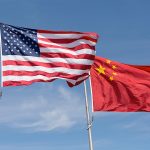On behalf of the Canadian Agri-Food Trade Alliance (CAFTA), the voice of Canadian agriculture and agri-food exporters, I write to urge the Government of Canada to take a leadership role in securing a free trade agreement with the remaining 11 Trans-Pacific Partnership (TPP) members and to implement it without delay. As the second-largest economy in the group, Canada ought to be at the forefront of securing this deal. The Asia-Pacific Economic Co-operation summit in Vietnam presents a unique opportunity.
With uncertainties surrounding NAFTA, it’s essential for our globally competitive agriculture and agri-food sector to have improved access to markets in the dynamic Asia Pacific region. CAFTA represents farmers, ranchers, producers, processors and agri-food exporters who want to grow the economy through better access to international markets. This includes the beef, pork, meat, grains, cereals, pulses, soybeans, canola as well as the sugar, malt, and processed food industries. More than 90 per cent of Canada’s farmers depend on world markets, and the sectors CAFTA represents support over a million jobs in urban and rural communities across Canada.
Read Also

EU’s pesticide reciprocity could disrupt trade
The Canada Grains Council says the EU’s pesticide reciprocity rules could seriously damage trade to one of Canada’s top diversification markets.
While implementing progressive trade rules with all participating countries is important, Japan is a critical high-value market – demanding nearly $4 billion in Canadian agri-food exports in 2016. Fortunately, Japan has been pressing for a deal for months and is eager for the TPP-11 to become a reality.
Unfortunately, Canada’s competitors are well ahead of us in obtaining free trade agreements with Japan. Australia and Chile already have free trade agreements and the Japan-EU Economic Partnership Agreement will slash 85 per cent of Japanese tariffs on European agriculture and food products. Retaining competitive access to Japan is essential for Canada to achieve the target of $75 billion of agri-food exports in 2025 contained in the 2017 federal budget.
The status quo is not an option. The more time slips by, the more time our competitors have an advantage and the further we fall behind in the Japanese market. This means lost opportunities for economic growth and jobs here in Canada.
We agree with Minister François-Philippe Champagne when he says, “there has never been a better time for Canada to diversify its trade.” A TPP-11 that incorporates the market access outcomes of the original TPP is the best and perhaps only option available for Canada to secure access to Japan and many other fast-growing Asia-Pacific countries, such as Vietnam and Malaysia. Implementing an agreement in the near future will prevent our exports to Japan from eroding and boost our ability to create jobs in the future. It will also show that Canada is committed to breaking down barriers while building up relationships with our trading partners.
Prime minister, this historic opportunity can only be realized by your government’s willingness to lead the way in securing a progressive agreement with the remaining TPP countries.
Brian Innes is the president of the Canadian Agri-Food Trade Alliance. The organization includes members of the Canadian food sector, including primary producer groups.
















